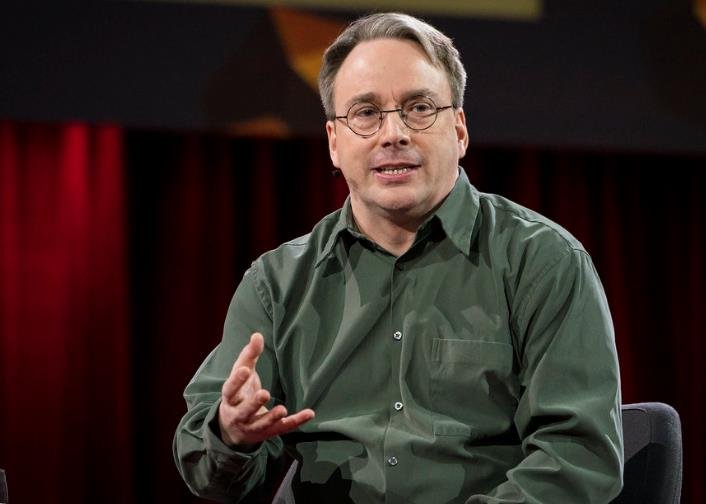In a candid interview at the recent Open Source Summit with TFIR, Linus Torvalds shared his skepticism about the widespread enthusiasm surrounding artificial intelligence. “I think AI is really interesting and I think it is going to change the world,” Torvalds acknowledged. “At the same time, I hate the hype cycle so much that I really don’t want to go there.”
He went on to express his disillusionment with the AI industry’s focus, stating, “I think the whole tech industry around AI is in a very bad position, and it’s 90% marketing and 10% reality.”
Torvalds’ Perspective on AI Development
Torvalds emphasized his decision to ignore AI advancements for the time being. “My approach to AI right now is I will basically ignore it because I think the whole tech industry around AI is in a very bad position,” he explained. He added, “In 5 years, things will change and at that point, we will see what of the AI is getting used for real workloads.”
His stance highlights a broader concern within the tech community about the gap between AI’s promises and its practical applications. Torvalds believes that the current focus on marketing over substance is detrimental to genuine technological progress.
- Skepticism of AI Hype: Torvalds criticizes the overemphasis on AI marketing rather than tangible advancements.
- Focus on Open Source: He remains committed to open-source projects, believing they offer more sustainable and practical solutions.
- Future Outlook: Torvalds is open to reevaluating AI’s role in technology after observing its real-world applications over the next few years.

AI’s Role in the Tech Industry Today
Artificial intelligence has seen massive investments and rapid growth, with major tech companies like AMD, Apple, Intel, NVIDIA, Qualcomm, Samsung, Microsoft, Amazon, and Google integrating AI into their products and services. This surge has created a booming market valued in trillions of dollars, with expectations of significant expansion in the future.
Despite this growth, Torvalds remains unconvinced of AI’s immediate utility. “AI isn’t doing much so far,” he remarked, aligning with the view that many AI applications are more about creating buzz than delivering substantial benefits.
Table: Major Tech Companies Investing in AI
| Company | AI Initiatives | Investment Focus |
|---|---|---|
| AMD | AI-powered processors | Enhancing hardware for AI tasks |
| Apple | Siri enhancements, machine learning in devices | Improving user experience through AI |
| Intel | AI chips, autonomous driving technology | Developing AI-specific hardware |
| NVIDIA | AI GPUs, deep learning platforms | Powering AI research and applications |
| Qualcomm | AI in mobile devices | Integrating AI into smartphones |
| Samsung | AI in consumer electronics | Smart home and device AI integration |
| Microsoft | Azure AI services, conversational AI tools | Expanding cloud-based AI solutions |
| Amazon | Alexa improvements, AWS AI services | Enhancing cloud and consumer AI |
| TensorFlow, AI research | Advancing machine learning frameworks |
The Divergence Between AI Hype and Reality
Torvalds’ critique underscores a critical issue: the disparity between AI’s marketed potential and its current practical applications. While AI technologies continue to evolve, their integration into everyday tools and systems often falls short of the lofty promises made by their proponents.
He pointed out, “In 5 years, things will change and at that point, we will see what of the AI is getting used for real workloads.” This sentiment reflects a cautious optimism, suggesting that while AI has the potential to revolutionize various industries, it needs time to mature and demonstrate its true capabilities.
Community and Industry Reactions
Torvalds’ comments have sparked discussions within the open-source and broader tech communities. Many share his frustration with the AI hype, feeling that the focus should shift towards meaningful advancements rather than flashy marketing campaigns.
One developer noted, “It’s refreshing to hear someone so influential call out the overhyped aspects of AI. We need more focus on creating real, impactful technology.”
On the other hand, some industry experts argue that the current marketing efforts are essential for driving investment and interest in AI, which will eventually lead to more substantial developments. “Marketing plays a crucial role in getting AI technologies the attention and resources they need to advance,” said Dr. Emily Chen, a professor of Computer Science at MIT.
Bullet Points: Community Perspectives on AI
- Support for Torvalds’ View: Advocates believe that reducing hype can lead to more focused and genuine technological progress.
- Counterarguments: Some argue that marketing is necessary to sustain investment and interest in AI research.
- Balanced Approach: A middle ground suggests promoting realistic expectations while encouraging innovation and development.
Future of AI According to Torvalds
Torvalds remains hopeful about AI’s potential but insists on a grounded approach. He plans to re-evaluate his stance on AI in five years, allowing time for the technology to prove its worth in real-world applications.
“In 5 years, things will change and at that point, we will see what of the AI is getting used for real workloads,” he reiterated. This outlook emphasizes patience and a willingness to adapt based on AI’s demonstrated effectiveness.
Table: Torvalds’ AI Outlook
| Aspect | Current Stance | Future Outlook |
|---|---|---|
| Current Involvement | Chooses to ignore AI developments | Open to reevaluating AI’s utility in 5 years |
| Perception of AI | 90% marketing, 10% reality | Awaiting tangible AI advancements |
| Focus Areas | Open source, sustainable technology | Potential AI integration based on results |
Industry Experts Weigh In
Torvalds’ statements have garnered attention from various industry leaders and analysts. Many agree that while AI holds significant promise, its current applications often fail to meet the high expectations set by aggressive marketing.
“AI has immense potential, but it’s important to distinguish between what’s being marketed and what’s truly achievable today,” stated Dr. Alan Smith, a technology analyst at Gartner.
Community Sentiment
The broader community appears divided, with some supporting Torvalds’ call for more substance in AI development, while others believe that the current excitement is laying the groundwork for future breakthroughs. This divergence highlights the ongoing debate about the role of hype in technological innovation.
Challenges Ahead for AI
Despite the enthusiasm, AI faces several challenges that need to be addressed to fulfill its potential:
- Ethical Concerns: Ensuring AI systems are fair, transparent, and accountable.
- Technical Limitations: Overcoming current barriers in AI’s ability to perform complex tasks reliably.
- Integration Issues: Effectively incorporating AI into existing systems and workflows.
Torvalds’ critique serves as a reminder that the path to meaningful AI advancements requires careful consideration and realistic expectations.







